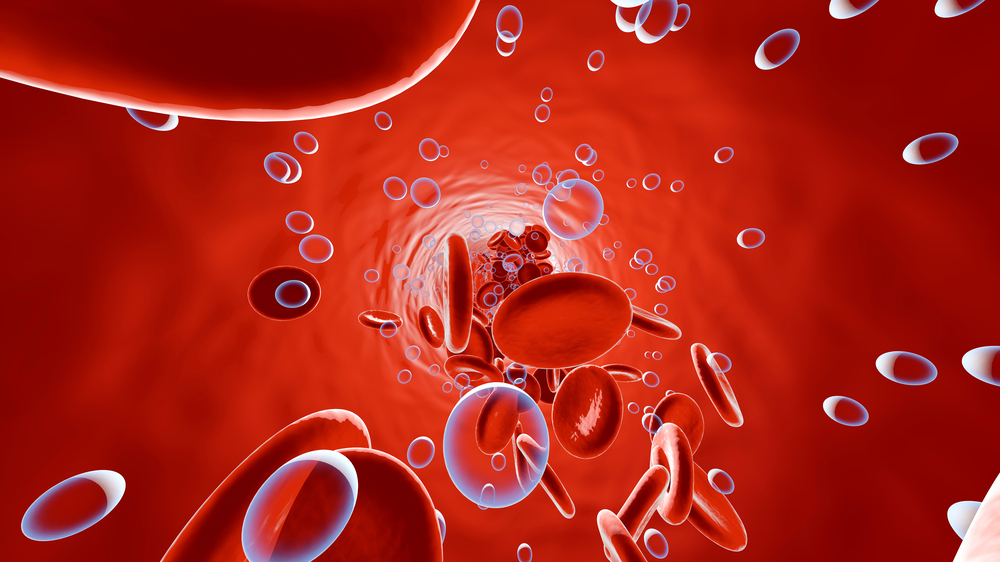Early Data Shows Benefits of Hypoxemia Treatment for IPF, Phase 2 Study Enrolling Patients
Written by |

Global Blood Therapeutics (GBT) recently published positive preclinical results supporting the development of GBT440 for the treatment of lung diseases associated with hypoxemia (abnormally low levels of oxygen in the blood), such as idiopathic pulmonary fibrosis (IPF).
The results were detailed in the study, “Increased hemoglobin–oxygen affinity ameliorates bleomycin‐induced hypoxemia and pulmonary fibrosis,” published in the journal Physiological Reports.
GBT1118, an analog of GBT440, is a orally bioavailable small molecule that binds to hemoglobin. The compound is designed to increase oxygen uptake in the lungs, leading to improved oxygen delivery to the tissues. The effects of GBT440 analogs have been established in three different animal models of hypoxia, with the results supporting the beneficial therapeutic effects of hemoglobin modifiers in the treatment of hypoxemia associated with chronic fibrotic lung diseases, including IPF.
“Shortness of breath [dyspnea] and worsening hypoxia are hallmark clinical features of IPF, and currently, there is no commercially available drug to resolve these devastating symptoms. New treatments are needed that can potentially improve patients’ quality of life,” said Ted W. Love, MD, president and chief executive officer of GBT in a press release. “These data support our belief that hemoglobin modifiers can improve hypoxemia and potentially delay the progression of pulmonary fibrosis. Based on this preclinical proof of concept data, we recently initiated a Phase 2a trial of GBT440 in IPF patients and anticipate data from this trial in the second half of 2017.”
That clinical trial (NCT02846324), a randomized, double-blind, placebo-controlled study evaluating the safety, tolerability, pharmacokinetics, and effect of once daily GBT440 treatment on hypoxemia in about 30 IPF patients, is currently recruiting patients at its nine test sites across the U.S. More information is available on its clinical trials.gov website, or by clicking on the trial’s identification number, given above.
Researchers in the preclinical study, using a bleomycin‐induced mouse model of hypoxemia and fibrosis, assessed GBT1118 and evaluated whether pharmacological modification of hemoglobin-oxygen affinity could treat hypoxemia associated with lung fibrosis.
GBT1118 was given to mice for eight consecutive days. Hypoxemia was determined by arterial oxygen saturation monitoring, and pulmonary fibrosis severity was measured by histopathological evaluation. Levels of collagen and leukocytes were determined through the bronchoalveolar lavage fluid.
Results showed that treatment with GBT1118 raised arterial oxygen saturation to near normal levels. In addition, the treatment attenuated lung fibrosis by nearly 50 percent, and reduced collagen accumulation, body weight loss, as well as inflammatory leukocyte infiltration.
“In summary, this study supports further clinical evaluation of allosteric Hb [hemoglobin] modifiers as a novel therapeutic strategy for treating hypoxemia associated with pulmonary fibrosis and potentially retarding the progression of pulmonary fibrosis,” the researchers concluded.






